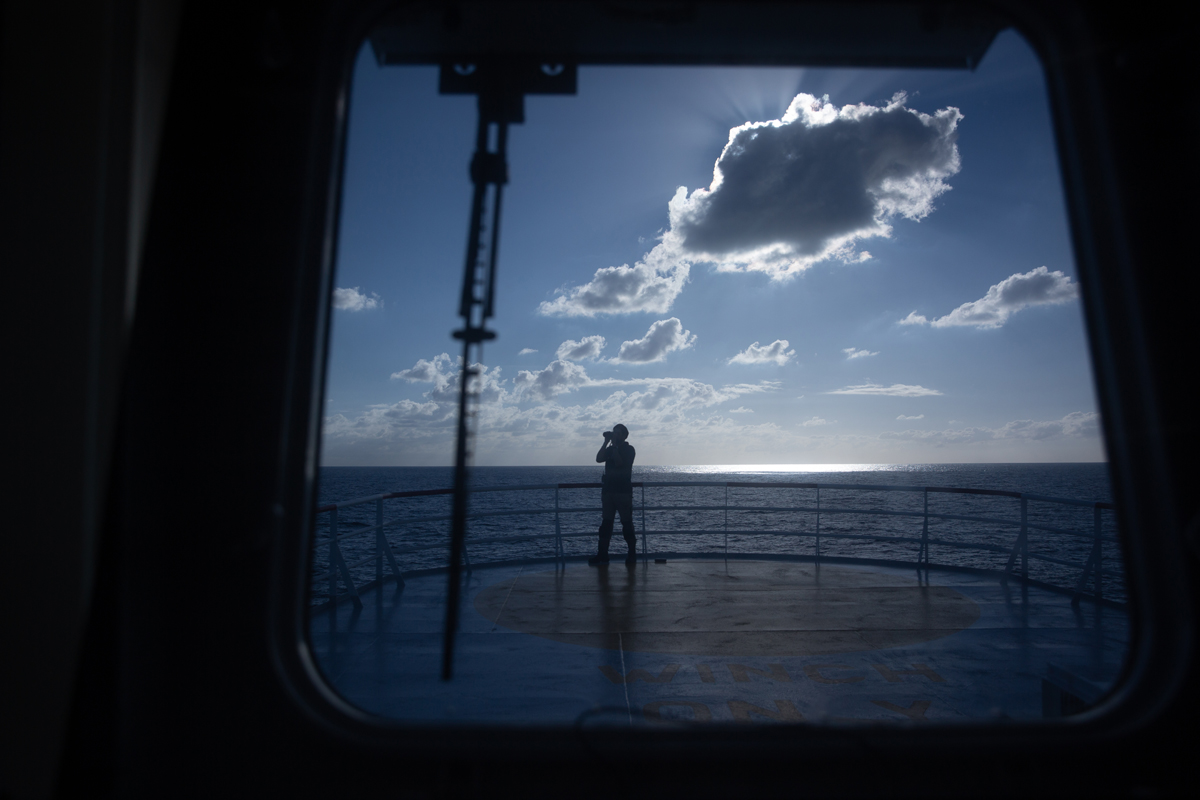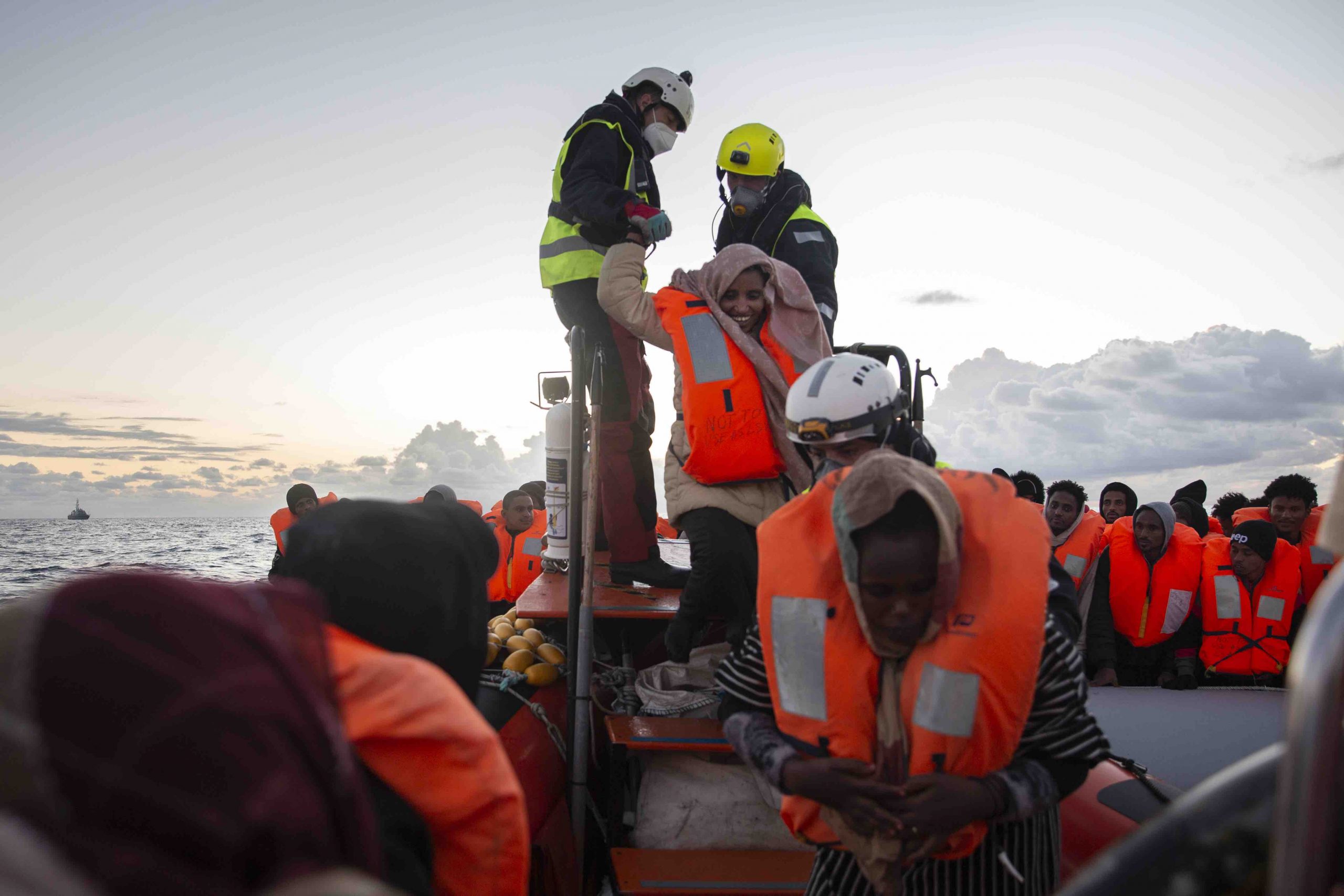The Ocean Viking is sometimes referred to by its crew as “a floating ambulance”, where doctors like IFRC’s Marie Munoz-Bertrand offer critical medical services to people whose bodies and minds have endured tremendous hardship, deprivations and shock.
“Even in the best conditions, there will be changes in language, temperature and foods,” she says. “In the worst conditions, you have very hard living conditions and sometimes quite severe losses, trauma and injuries.”
With the help of audio clips from her interviews, Alexia introduces us to asylum seekers like Hayelom and from crew members of the Ocean Viking, people like Abdel, the IFRC post rescue facilitator, who has spent much of his life in recent years at sea trying to prevent even more lives from being lost.
“The only sentence they want to hear is ‘You are safe,’ ” says Abdel, referring to shipwrecked people who are picked up by the Ocean Viking. “’You are safe’ means you are not going back to Libya. For them. this is an important moment. So I choose my word is very well. I tell them this with respect and dignity and they believe me.”
Part of Abdel’s job is also also to prepare the rescued migrants for what to expect as they start their new lives on European soil, where they confront a new series of challenges. Hayelom says he knows life in Europe will not be easy but he’s grateful to be safe and to still have the chance to realize his most fundamental aspiration.
“Before, my dream was always only to have a peaceful life,” says Hayelom. “And then, I started to dream only to stay alive. Now again, I only want to realise one thing: to have a peaceful life. I don’t ask for much.”
 Red Cross Red Crescent magazine
Red Cross Red Crescent magazine 








